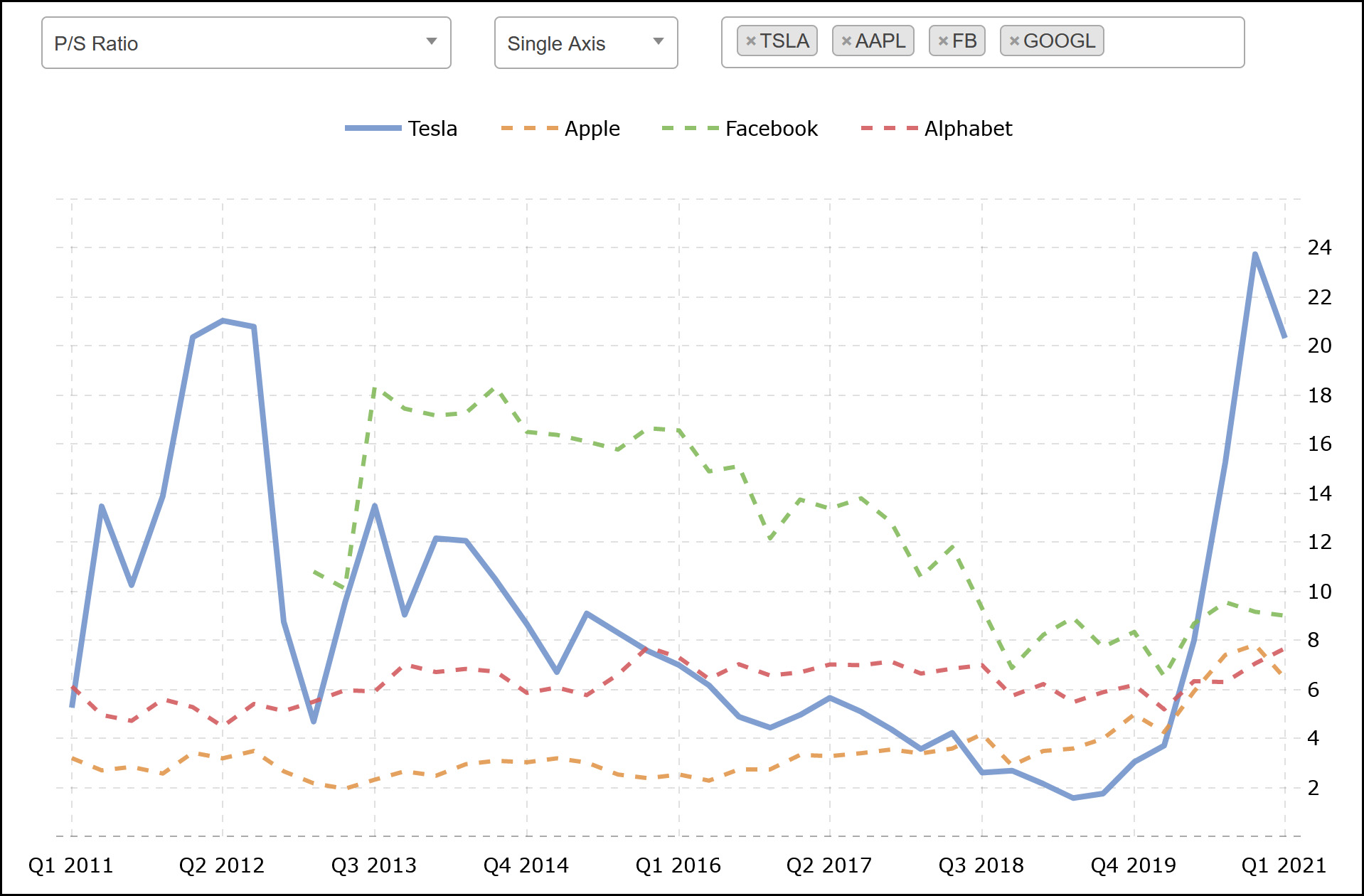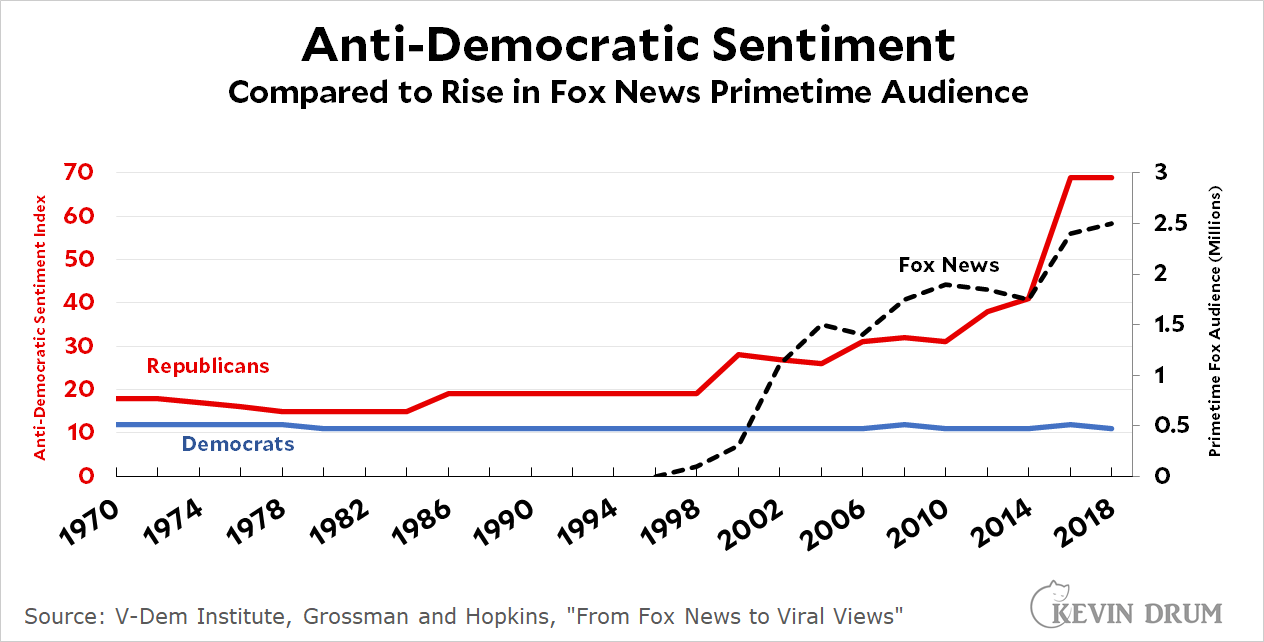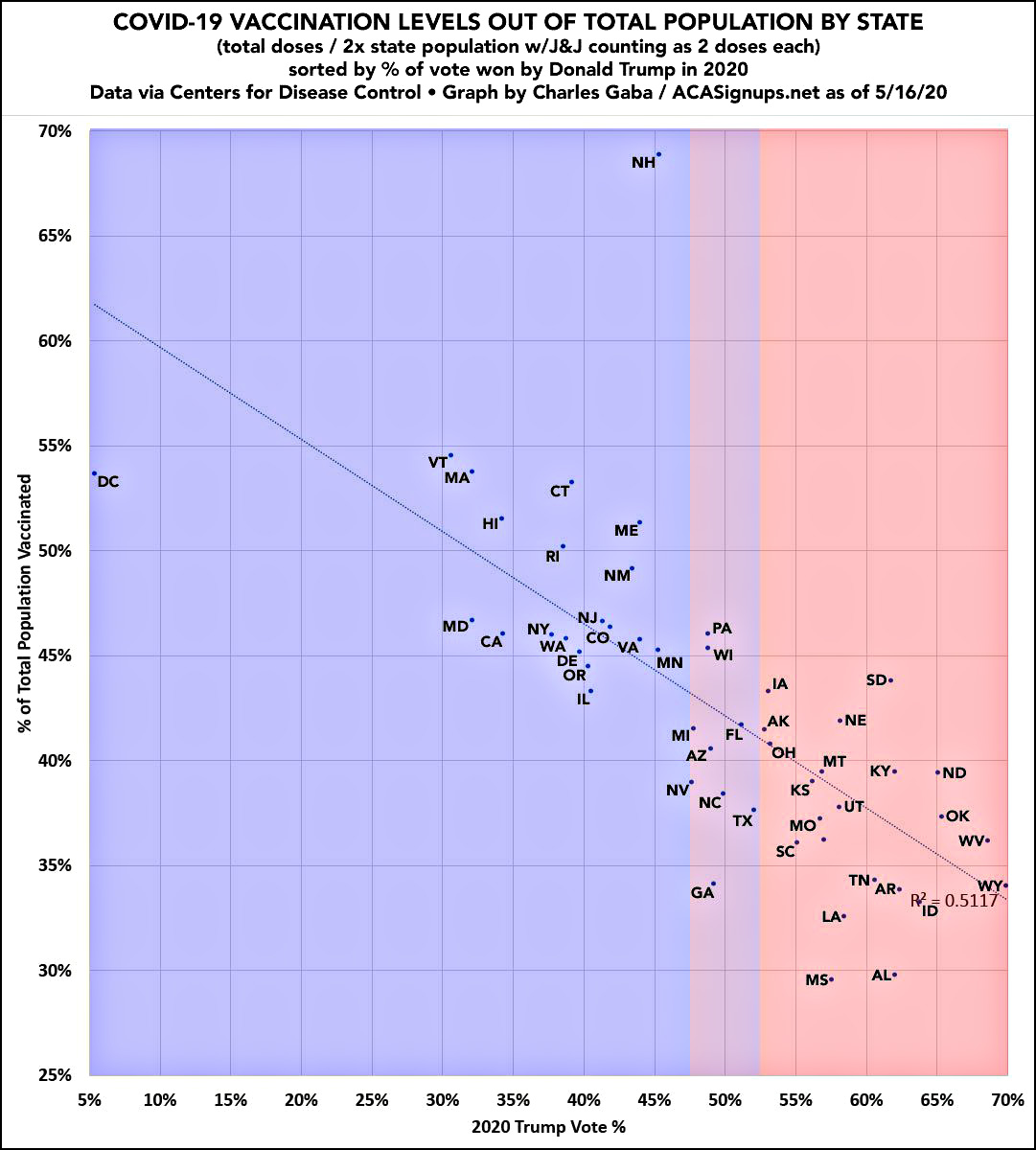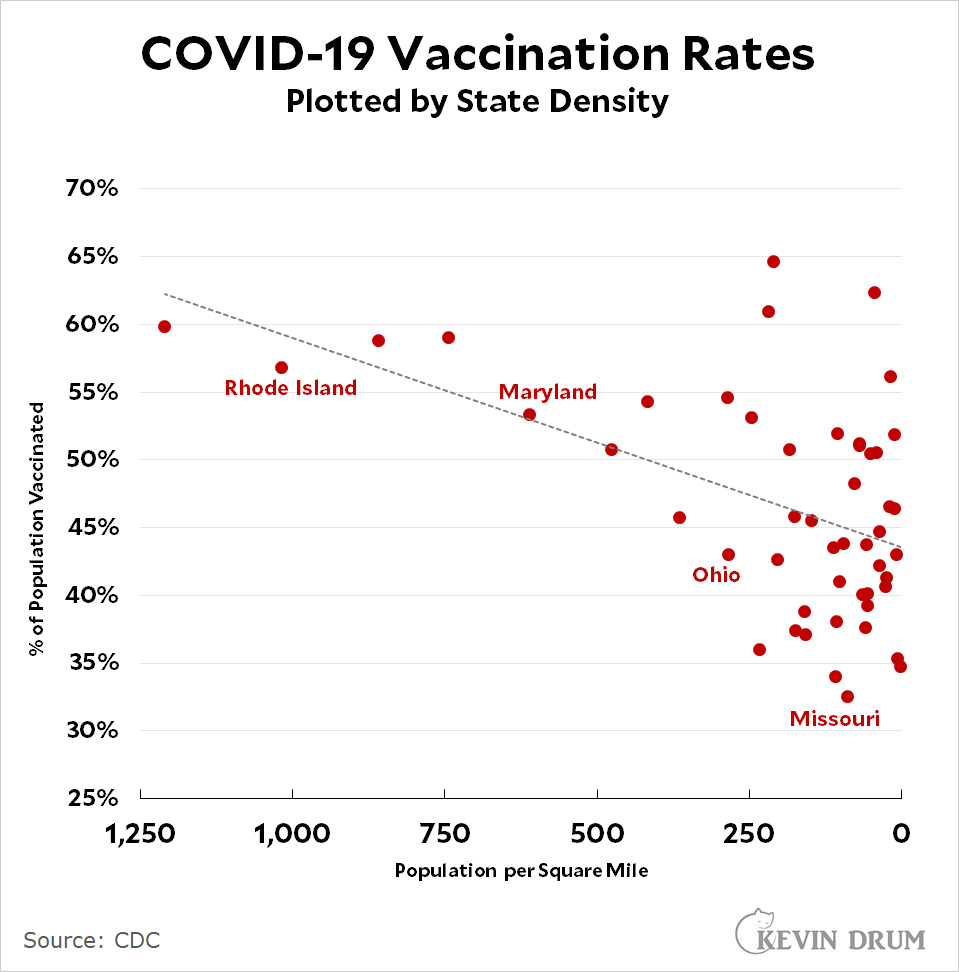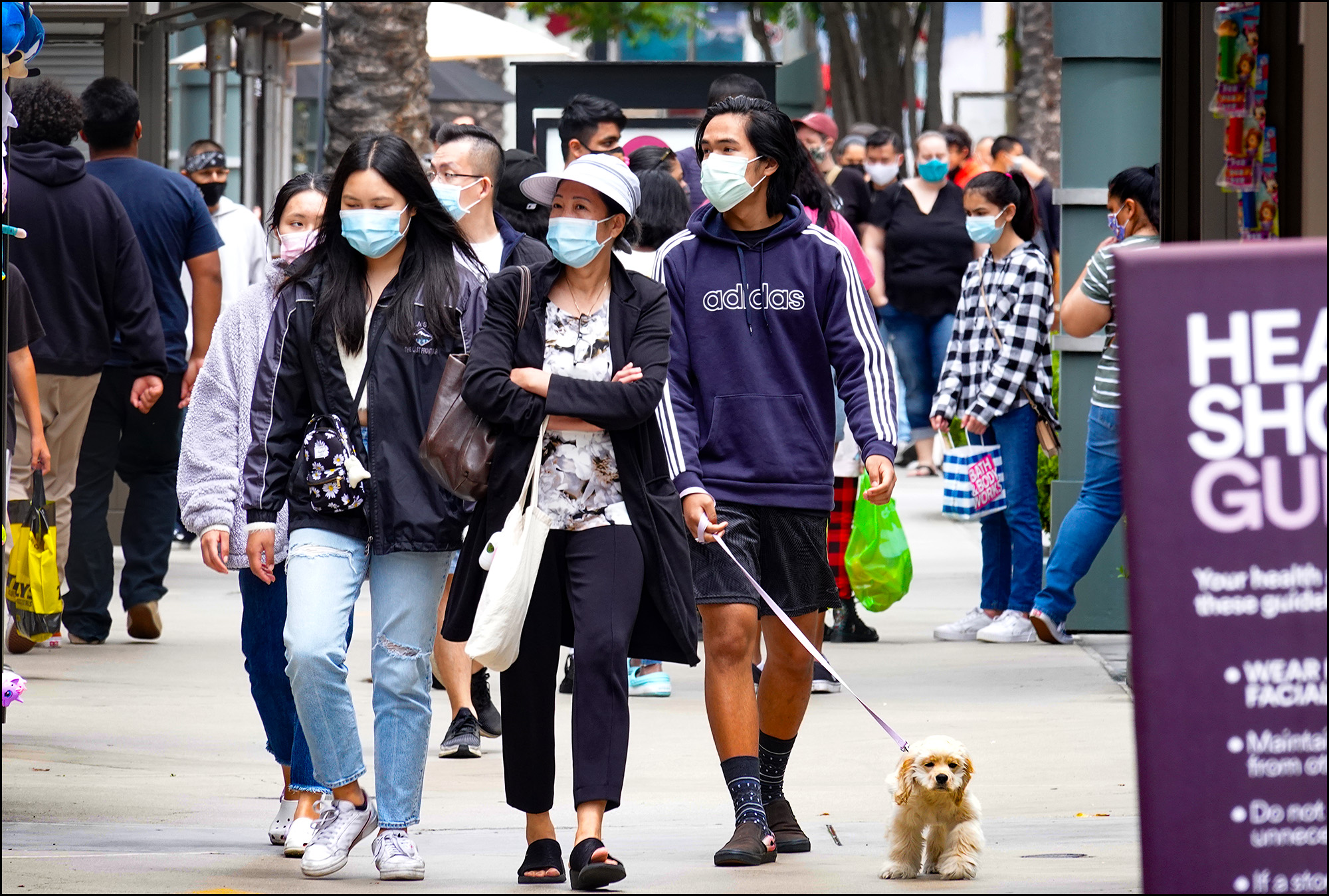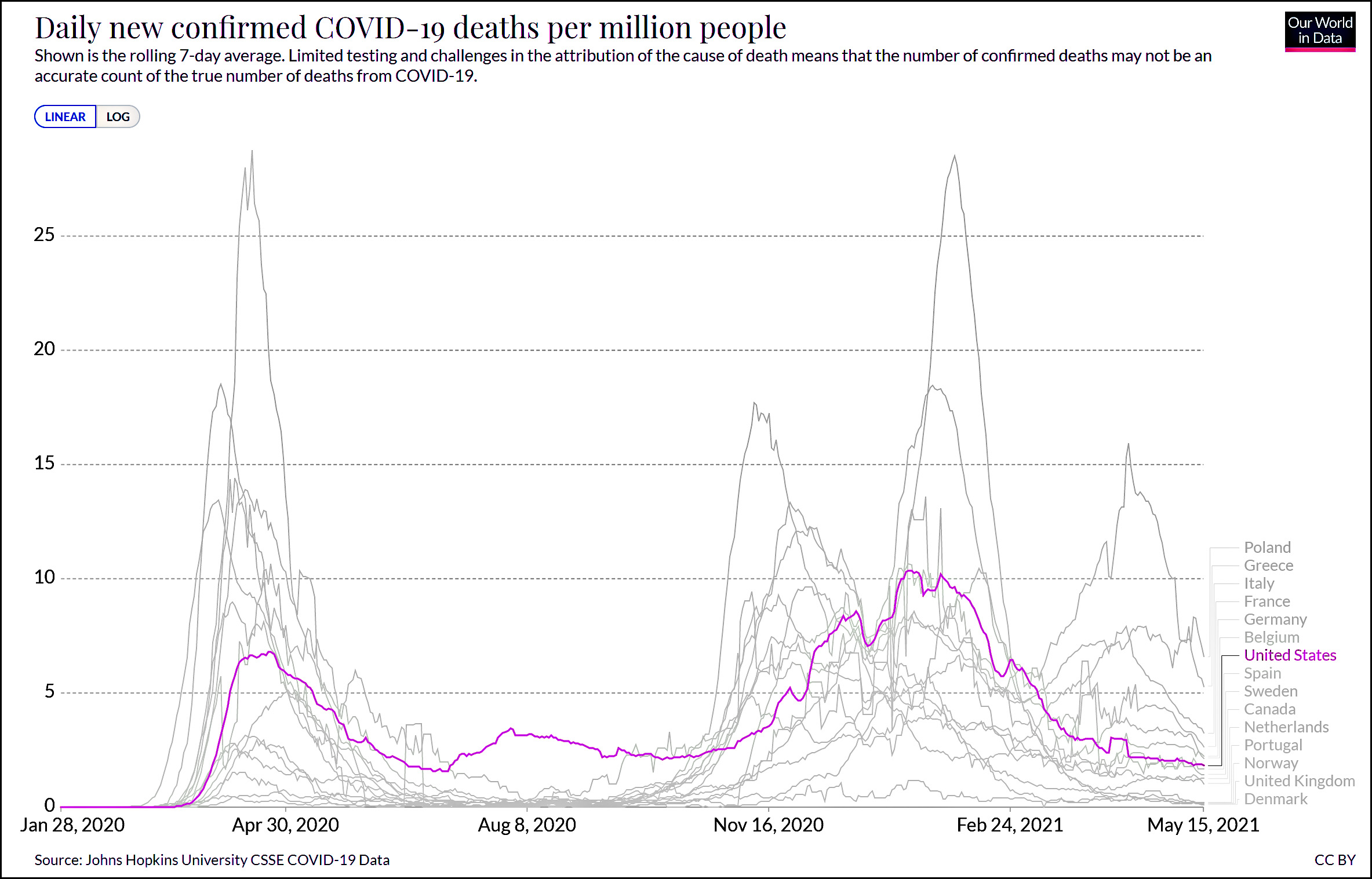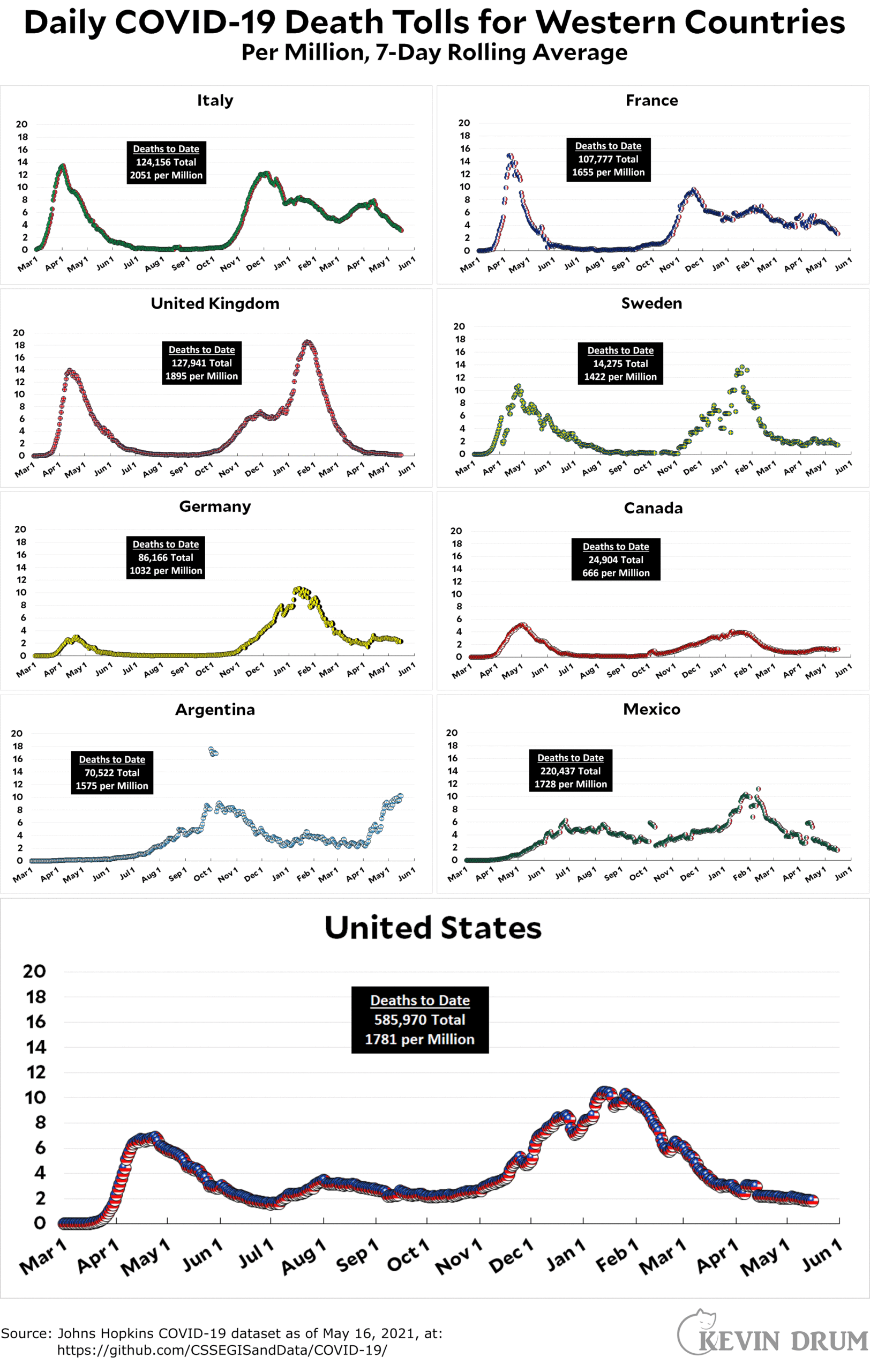I'm reposting this since a lot of people might not have seen it over the weekend.
Not everyone wants to get the COVID-19 vaccine. Hesitance is highest among young people, the Black community, and, of course—Republicans.
This is nothing new. Here is the historical reaction of Americans to getting vaccines¹:

Overall response to the COVID-19 vaccine is right in line with historical averages. What's more, Republicans have always been more hesitant about vaccines than Democrats—though with a twist:
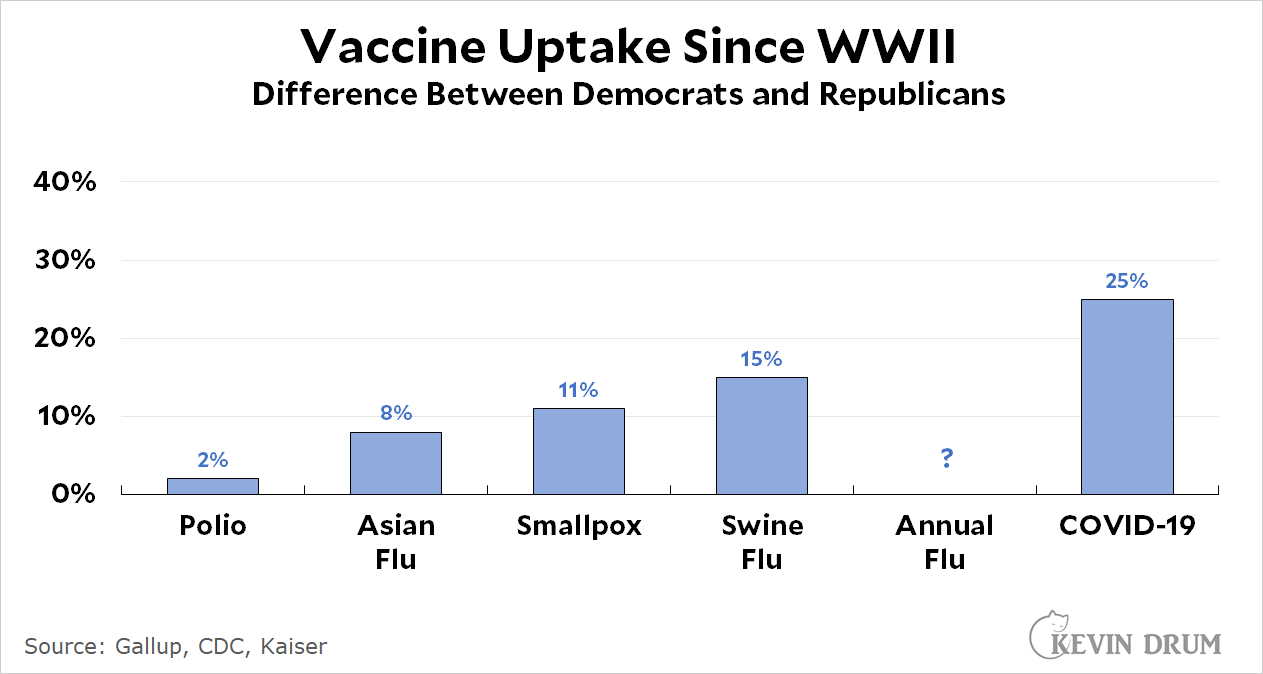
As you can see, Republicans have always been more wary of vaccines. That wariness has increased over time, but it's been stable since 2000 and obviously has nothing to do with Donald Trump. In fact, the especially big difference in the uptake of the COVID-19 vaccine isn't due to Republicans becoming more hesitant at all. It's due to Democrats becoming less hesitant. Democrats are about 20 points more enthusiastic about the COVID-19 vaccine than they have been about other vaccines.
There's an important point here: People are hesitant about vaccines for different reasons, and conservatives have historically been more hesitant than average about them. This means that loud snarking about Republicans being idiot zealots willing to kill themselves just for partisan satisfaction misses the point: their hesitance has little to do with Donald Trump or Tucker Carlson or the polarization of modern politics. Vaccine yahooism may have made things worse at the margins, but that's about it. Conservatives have always been this way.
I don't know why this is. Maybe it's due to natural conservative suspicion of the federal government. Jonathan Haidt might say it's due to conservative belief in the sanctity of the human body. Or, since a big part of the difference is due to rural residents, it might have something to do with longtime rural suspicion of new technology.
In any case, those are the sorts of things we should be looking at if we really and truly want to increase vaccination rates.² It's more fun to go after Tucker Carlson—and I encourage everyone to continue doing this—but the evidence says that's not really the primary underlying issue here. Something else unrelated to the present day is at fault. We should try to figure this out with the same empathy and understanding that we feel toward young people and Black doubters.
¹Historical data from Gallup. Annual flu data from the CDC. Current COVID-19 data from the Kaiser tracking poll.
²I do.

